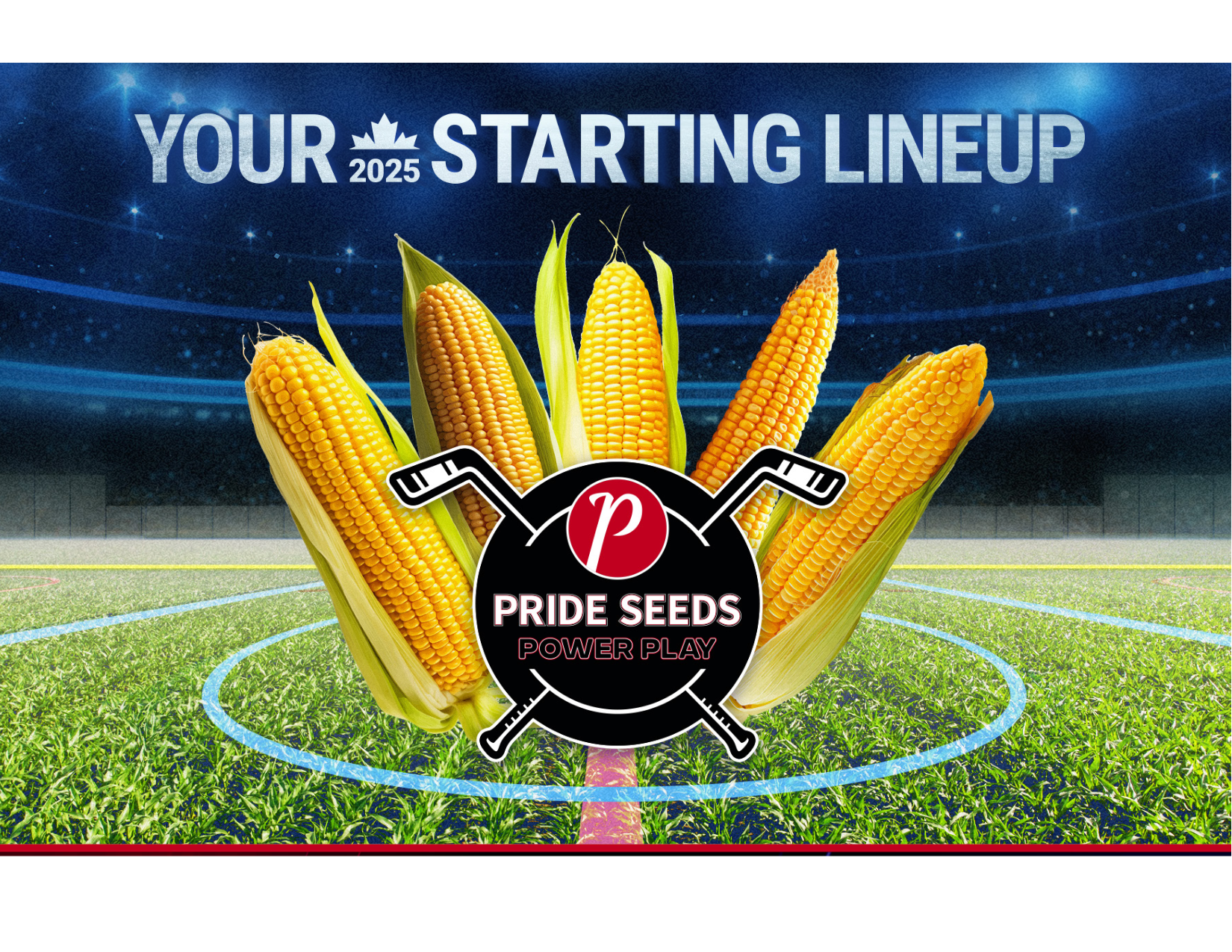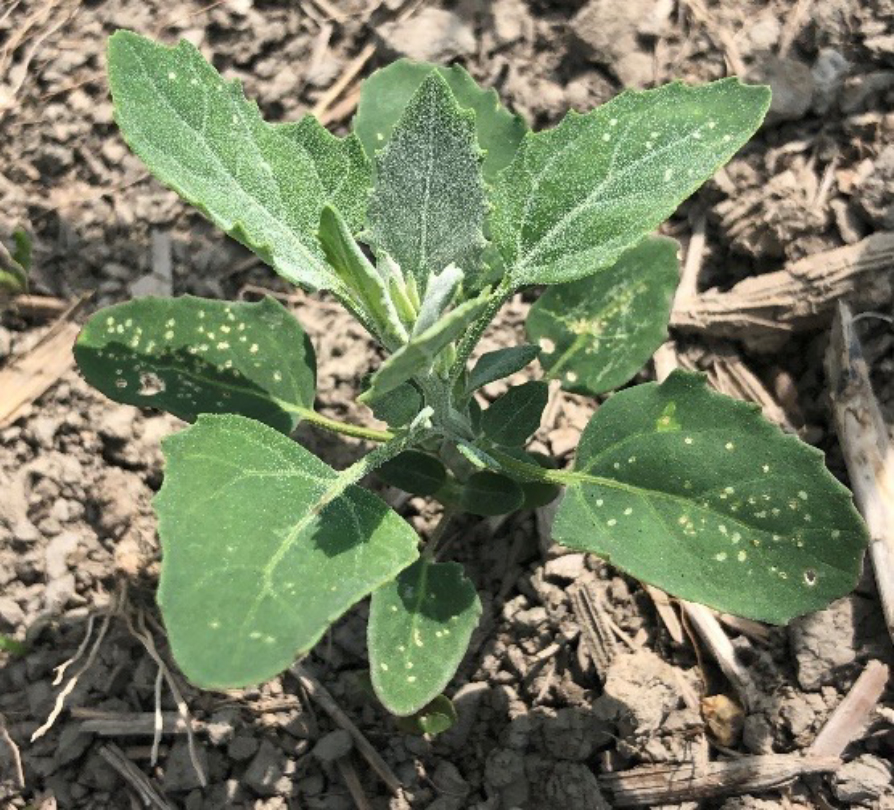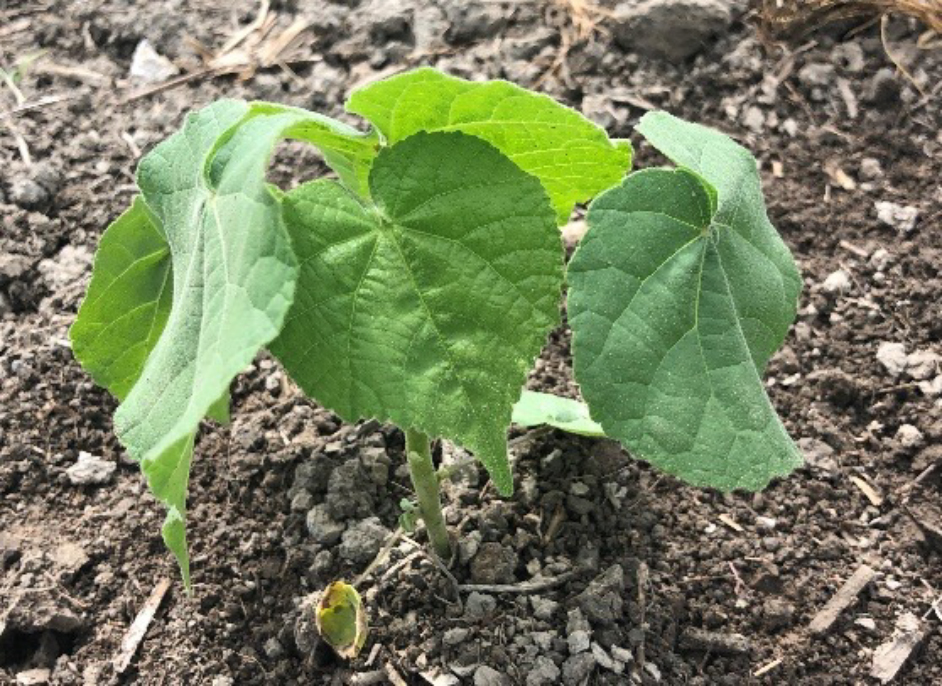___________________________________________________________________________________________________________________________________________

2024-2025 PRIDE Seeds Product GuideYou can find all of our products on the website, including supporting performance data and create your own personalized guide called My Guide. You can also download the digital version of our printed product guide which includes product comparison charts. |

Glyphosate & Ammonium Sulphate
It is sometimes difficult to control certain weeds, even with glyphosate. What can explain the low effectiveness of glyphosate?
Often the cause is too late application. Two problematic weeds at this level are lambsquarters and velvetleaf.


REASON: These 2 weeds have a high calcium content, which may cause a decrease of glyphosate effectiveness.
An appreciable amount of Calcium is present in these plants, and also the "white powder" on the leaf surface of lambsquarters contains a lot of Calcium, which binds to glyphosate even before it penetrates the foliage.
The same principle applies to the hardness of the water... I am talking here about the presence of cations (Ca2+,Mg2+ among others), particles of positive charge in the water used to fill the tank, which will attach to glyphosate and inactivate it. In general, water sources in Quebec (well, city) are of good quality, but some regions are more at risk (Ormstown region for example...).
It is possible to inactivate the cations by adding ammonium sulphate to the tank (water conditioning) BEFORE adding glyphosate. Ammonium sulphate is a strong acid that dissolves completely, and whose sulfur component is negative and will fix the cations present in the water, allowing glyphosate to do its job freely. It can also be remedied by using higher rates of glyphosate, as is most often recommended. Using a higher rate of glyphosate, with the addition of ammonium sulfate increases even more the effectiveness of the treatment in the worst cases...
Another factor that can affect the effectiveness of glyphosate is related to its ability to attach to solid particles. Whether it's dust on the foliage or particles suspended in the water, the force with which glyphosate tends to bind to these particles is so important that you end up with an ineffective glyphosate solution. For glyphosate, you really have to make sure you use clean water.
Tip: Fill a 20 liters jar with water, throw a quarter into it. If you no longer see it at the bottom, it is because there are too many particles suspended in the water and you should find another source of water. Glyphosate is among the most sensitive herbicides to water quality.
THE PRIDE SEEDS ADVANTAGE
Farming is one of the most demanding industries in the world, subject to a variety of factors such as time, weather, and global pressures. You know this every time you look out the window and think about the field in front of you. Growers and dealers deserve an advantage: The PRIDE Seed Advantage.
LEARN MORETHE PRIDE SEEDS ADVANTAGE
Every year PRIDE Seeds works hard to produce leading-edge products that enable success where it matters most, on your farm. Our dedicated team strives to provide sales expertise, agronomy support, quality production, and service tailored to meet your needs.
LEARN MORE
-7.png?sfvrsn=87920db3_3)

Leave a commentOrder by
Newest on top Oldest on top